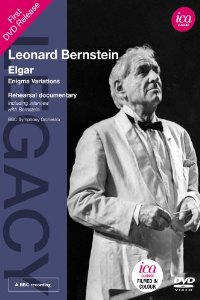Toby Spence’s recovery from thyroid cancer is a cause for rejoicing, but surely it’s time we focused our attention back on his work rather than his medical condition? Apparently not. The pre-publicity for this Wigmore Hall recital made great play of the “profound insights into the human condition” that the singer acquired during his convalescence – a claim that must have ladled extra pressure onto him as he prepared his programme.

L’Arpeggiata are everything that crossover should be and everything that this arranged marriage of genres so often isn’t. The work of lutenist Christina Pluhar and her band of period musicians is organic and authentic, a blend of musics that amplify and enrich one another, a conversation between friends and equals.

There’s been a lot of backslapping over the success (so far) of The Rest is Noise festival, the Southbank’s year-long trawl through the music of the 20th century. They’re particularly pleased about the numbers of ignorant musical souls they’ve managed to convert over the past half a year. I hate to break it to them but getting a return on the music of the first half of the 20th century (which has included a surprising amount of barely 20th-century Elgar, Vaughan Williams, Strauss and Sibelius) is the easy bit. Last night we reached the 1940s and 1950s.

A “world premiere” of music written by Benjamin Britten just over 70 years ago? Whence this treasure trove of long-lost musical gold? Well, under the title of An American in England, in 1942 Britten wrote the score for a BBC/CBS co-produced series of six radio drama documentaries for transatlantic transmission to make Americans appreciate this country’s war effort. It was jointly commissioned by the War Office and performed by a 62-piece RAF band in full dress uniform.

Interviewed live just before his Proms performance of Britten’s Serenade, Ben Johnson was asked the usual question as to whether the composer wrote especially well for the tenor voice. “He writes amazingly for every instrument,” came the reply. If we needed a single-programme testament to that special genius, this all-Britten celebration from Vladimir Jurowski and his London Philharmonic Orchestra was it. In addition to the two billed soloists, there were at least a dozen from within the orchestra who proved the point.

Calixto Bieito’s fantasia on Fidelio may be lording it on the other side of the Thames but Orchestra Mozart, on its first-ever visit to London, was happy to place its trust in what Beethoven actually wrote. As if to prove that wild-child provocateurs don’t own the playground, traditions were reaffirmed at the Royal Festival Hall last night in this urbane and civilised concert led by two of music’s grown-ups, Maria João Pires and Bernard Haitink – late-notice super-subs for the advertised but dually indisposed Martha Argerich and Claudio Abbado.

It’s the Royal Northern Sinfonia now, the Queen having bestowed the prefix earlier this year. Programming two Requiem settings in the opening concert of their 2013-14 season seemed on paper a little strange, but the main work was Brahms’s A German Requiem, one of the more upbeat, if unconventional works to bear the title. Odd that some of the most heartfelt sacred music has been written by composers whose religious faith has never seemed their strong point; you think of choral music by Vaughan Williams and Britten.

They did it, and continue to do it, their way. Under the self-confident title of The Mancunian Way, the BBC Philharmonic’s new season aims to celebrate the story of music-making in the city through works, composers and performers with special links to Manchester. There is much to celebrate, not least nowadays the spirit of collaboration between the musical strongholds in the city, where it is entirely possible to carve out a total career from childhood to professional fulfilment.

 Elgar: Enigma Variations, Rehearsal documentary BBC Symphony Orchestra/Leonard Bernstein (ICA Classics DVD)
Elgar: Enigma Variations, Rehearsal documentary BBC Symphony Orchestra/Leonard Bernstein (ICA Classics DVD)

Night life in the Square Mile, at least from the perspective of my evening routes around the Barbican, is dominated by booze and sportiness. The way to last Thursday’s concert was blocked by a Bloomberg relay marathon, and cycling through the tunnel towards Milton Court yesterday evening, I encountered the bizarre spectacle of carnival-style trucks pedalled by a dozen drinkers apiece, sitting at a central "bar" and already well oiled.

